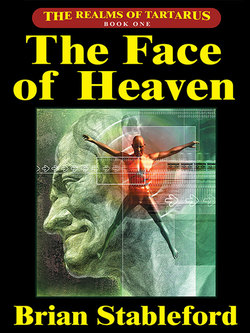Читать книгу The Face of Heaven - Brian Stableford - Страница 15
На сайте Литреса книга снята с продажи.
ОглавлениеChapter 11
The Marriage of Heaven and Hell by Carl Magner became available at all household lineprinters and the usual public outlets within a matter of minutes after the job of coding it into the cybernet was complete. The information that the book was so available took a little longer to circulate, and even then there was no mad rush to have a look at it.
Many people misinterpreted the use of a well-known title by William Blake. It was by no means uncommon in Euchronia’s Millennium for people to write long commentaries on, and even new versions of, prehistoric literature. After all, the essence and the meaning of ancient works had changed completely in the light of brand new Euchronian perspectives, and there was an eleven-thousand-year gap in the more abstract realms of cultural studies to be intellectually bridged. The assumption that Magner’s work was intimately connected with Blake’s was not unnatural. It is entirely possible that some of the men and women who did read the book soon after publication actually misread the whole text on the basis of that presumed connection. It is not inconceivable that given a decent interval and a certain amount of wayward luck Magner might have become something of a literary phenomenon, hailed as a genius in some quarters and viciously slandered in others.
But the avant-garde missed their chance (or Magner missed his). It was not too long before it was realized that the work stood by itself, that what it proposed was real, and that Magner actually meant what he said. This revelation caused something of a stir, but it was a stir of an entirely different kind.
The book gave a detailed account of life in the Underworld as it was lived by the human race. The account was possessed of a strange kind of hysteria, and the images presented lacked overall coherency though they had undoubted force and individual clarity. Many readers came to the conclusion that Magner was, if nothing else, a consummate artist. The bizarre and the terrifying were not common in the literature of the Euchronian Millennium.
The book also presented a strongly worded argument to the effect that Euchronia was guilty of extreme inhumanity In that it chose not to share its wealth with the men on the ground. Magner claimed that Euchronian civilization should not have shut the door on the Underworld when the platform became a single unit. He claimed that the opportunity to join the Movement should have been made available throughout the history of the Plan.
He further claimed that the citizens of the Euchronian Millennium had a moral obligation to throw open the doors to the Underworld, to resume commerce with the men on the ground, to supply their needs, and to allow them—if they wished—to leave the Underworld and take their place in the sun. “We have no right whatsoever,” wrote Magner, “to deny the people of the world below the Face of Heaven.”
